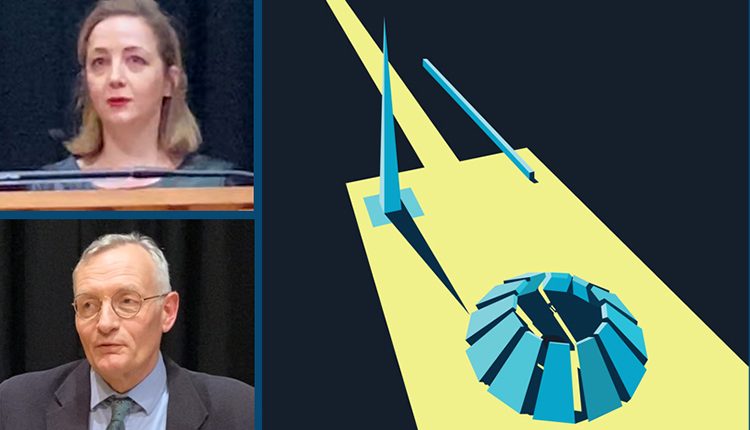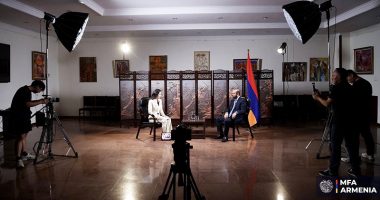OXFORD —A new initiative to study the Armenian Genocide and its connections to the world today was launched at Pembroke College with a string quartet concert in the Pichette Auditorium.
The Oxford Network of Armenian Genocide Research (ONAGR), the brainchild of Dr. Meryem Suzan Rosita Kalayci, hopes to foster new research directions in the study of the Armenian genocide, while making it part of global conversations about human rights, witness and genocide prevention.
Co-founder of the network Prof. Theo Maarten van Lint, Calouste Gulbenkian Professor of Armenian Studies, in his introductory remarks explained the purpose of the new project: “Combining the wealth of Armenia’s multi-millennia cultural legacy, cutting-edge research in genocide and post-genocide reality represents a significant development in Armenian Studies not only in the University of Oxford but for academia in the country and beyond, as well as in wider society.”
The world-renown Chilingirian String Quartet presented a unique program to the diverse audience made of students, faculty members, college representatives and members of communities in Oxford and London. A selection of Armenian compositions by Komitas, Aslamazian and Mansourian were presented for the first time in Oxford.
In her remarks, director and co-founder of the project Dr. Kalayci appealed to the minds and hearts of the audience. “The history of the Armenian genocide is the history of a war that never ended. The history of a region that never saw peace,” she said, adding that not much has changed in the last one hundred years. “Even the images [of suffering] we see remain the same: the only difference is that now we see them in colour and on our social media feeds.”
Conflicts in the Middle East—from the Armenian Genocide during WWI to what is happening in Syria today—have resulted in millions of victims and displaced communities. Surviving victims “have witnessed a world that most of us have not begun to face and never wish to,” Dr. Kalayci underlined. “We should remind ourselves that they have paid for our freedom. We owe to them to never look away.” She then called upon everyone “to open the borders of our hearts, minds, houses, colleges, universities and countries to prevent history from repeating itself. There is no other way.”
While a brand new research network, ONAGR has already established partnerships with a number of international institutions in locations such as Berlin, Istanbul, Yerevan, Paris and Los Angeles. In June 2019, ONAGR was chosen as one of three networks to be supported by The Oxford Research Centre in the Humanities (TORCH) and has received further funding from the Humanities Cultural Project Fund to create a pop-up Syrian library in the middle of Oxford during Trinity Term 2020. In addition, through extra funding from the John Fell Fund and the British Academy, ONAGR is working with the Oral History Archives at Columbia University (OHAC) to facilitate the digitization and transcription of the latter’s Armenian Oral History Project collection, which is expected to be completed by June 2020.
When asked why should ONAGR study the Armenian Genocide and its relevance to contemporary times, “It is not for the sake of history,” said Dr. Hratch Tchilingirian, a scholar of Armenian Studies in Oxford, “but more crucially to save the future.”










